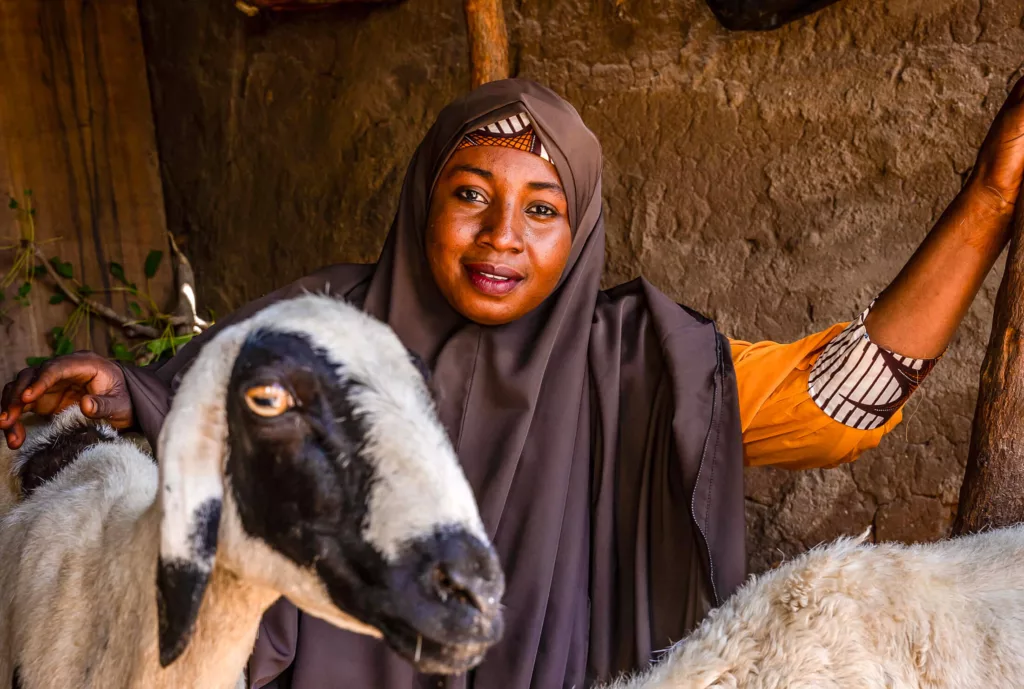Like so many recent years, 2023 was a year of challenge and heartbreak for too many communities worldwide—wars rage on, the dangerous effects of climate change are on the rise and millions of people have been displaced from their homes, facing an uncertain future. Yet with the help of our global community of generous supporters, International Medical Corps remained focused on facing these challenges head-on, turning obstacles into opportunities, and despair into hope.
It is no easy task to select a handful of images that accurately represent the breadth and depth of International Medical Corps’ work across the globe. With teams in 28 countries and a roster of more than 8,000 staff—97% of whom come from the communities they serve—our diverse programs are rooted in our mission of saving lives and relieving the suffering of people affected by conflict, disaster and disease.
In the face of natural disasters—such as the earthquakes in Syria, Türkiye and Morocco, hurricanes in the United States, and deadly flooding in Libya—our first responders leapt into action, delivering rapid relief and ongoing support. In some of the world’s most turbulent areas, we continued to lead efforts empowering women and girls to live free from gender-based violence. Our Nutrition teams and our Water, Sanitation and Hygiene teams continued to pursue innovative and lasting methods of combating hunger and the spread of infectious disease, from building solarized water-supply systems in Afghanistan to piloting new community health-based strategies in Somalia. Our Mental Health and Psychosocial Support teams remained unwavering in their efforts to treat the unseen psychological wounds of war, help children break free of stigma and shame, and even promote staff well-being in our own offices. And underpinning everything we accomplished was our ongoing commitment to training—strengthening communities by building the skills communities need to move from relief to self-reliance.
These 10 photographs are just a small sample of our work—yet they transport us to sites of grief, joy and hope. From remote villages to bustling cities, International Medical Corps’ global staff—and, of course, our community of supporters—helped bring healthcare services, vital supplies and training to millions of people worldwide.
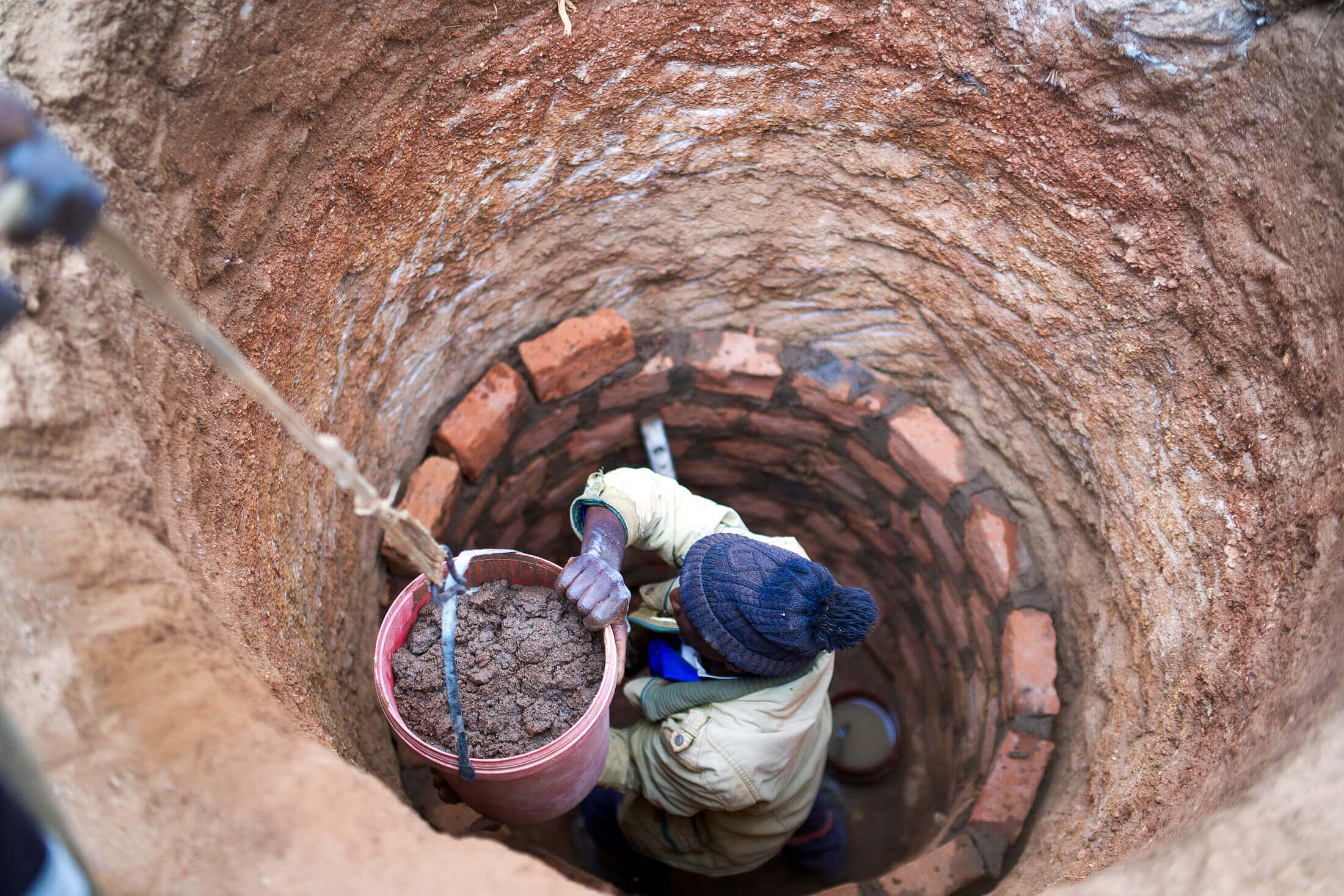
A member of our Water, Sanitation and Hygiene (WASH) team builds a toilet at a homestead in Matabeleland South, Zimbabwe. Toilet construction is part of International Medical Corps’ WASH program to ensure proper hygiene and fight disease, as well as to provide additional security for women and girls who otherwise would be forced to use less private options.

Children play at a Parenthood Festival in Irpin Central Park, Ukraine, organized by the International Medical Corps Nutrition team. The festival included a series of lectures by specialists in maternal and infant nutrition and food safety, as well as activities for parents, caregivers and children under 2 years old. In Ukraine, our Nutrition staff are working to train family doctors, nurses and pediatricians on the importance of breastfeeding, even during emergencies like war, focusing on locations that have seen an increase in internally displaced people.
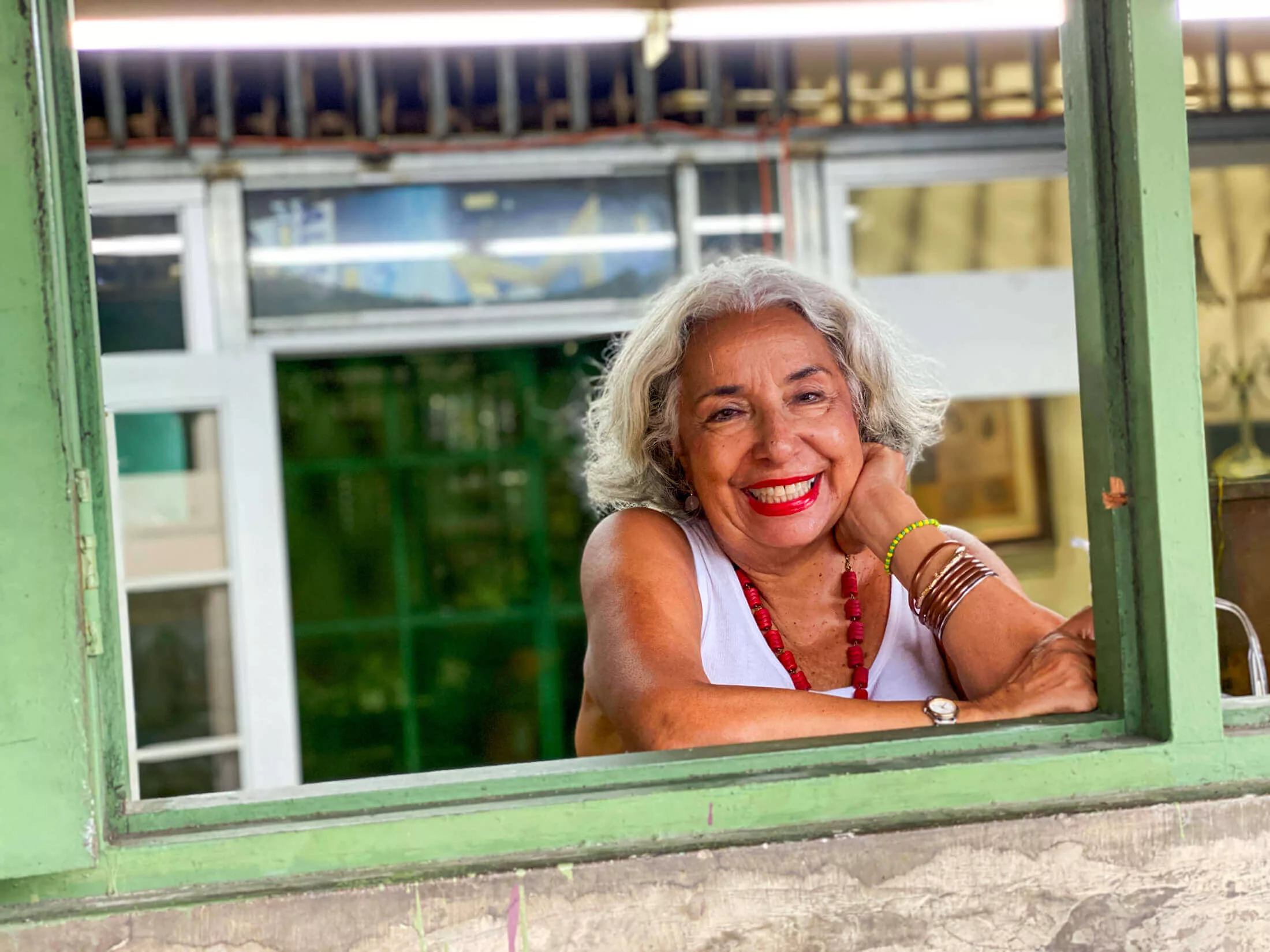
A woman smiles for the camera near La Placita, a popular fresh-food market featuring produce, prepared foods and beverages in San Juan, Puerto Rico. After Hurricane Maria, markets like La Placita began to close across the country, leading to a higher consumption of processed food for the people of Puerto Rico, where too many households experience unemployment and food insecurity. Our Nutrition team is helping to improve health by training parents, caregivers, and health and social workers on how to find and cook nutritious food.
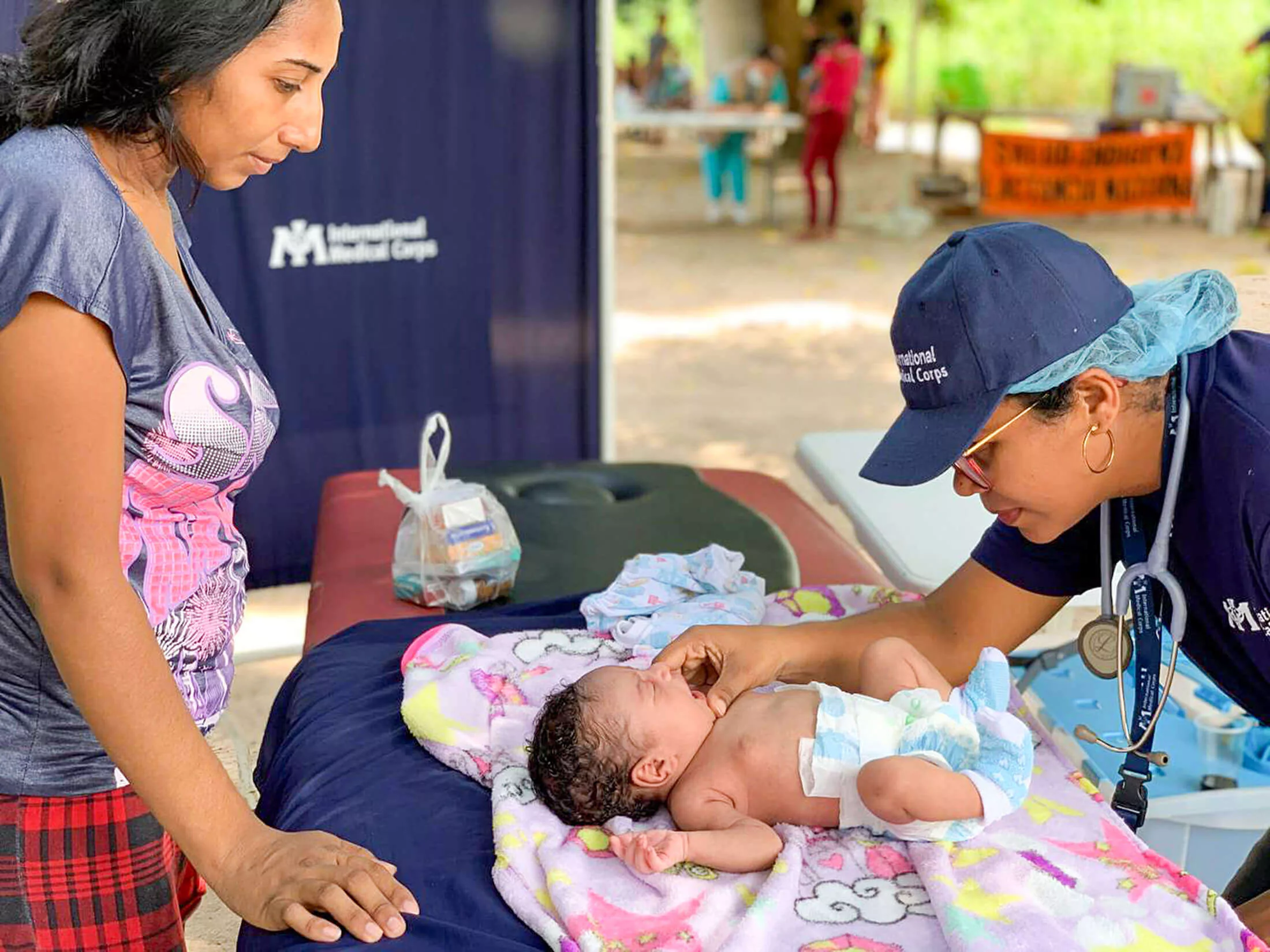
A health worker examines an infant at a mobile medical unit run by International Medical Corps, which is expanding sexual and reproductive health programs in five remote indigenous and two non-indigenous communities in the Sucre and Cedeño municipalities of Bolivar State, Venezuela. Our mobile medical units are also helping local health providers in these remote areas to diagnose and treat infant illnesses.
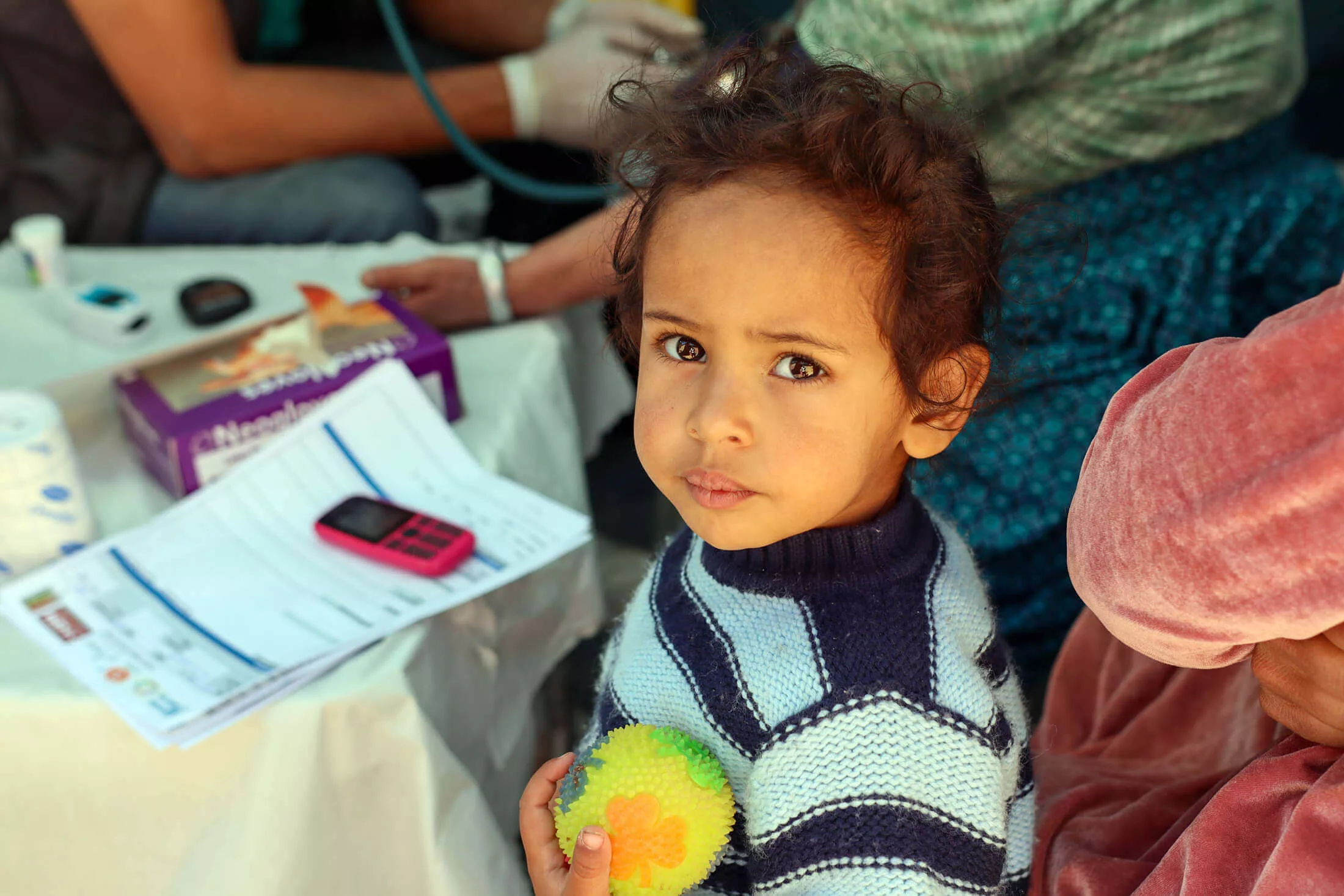
A young boy waits in a mobile medical unit (MMU) supported by International Medical Corps in the village of Tagnit Agdim, Morocco. In the aftermath of the devastating earthquake that struck September 8, 2023, International Medical Corps partnered with the Moroccan Ministry of Health and local partners to send MMUs to villages in the remote Taroudant and Al-Houz provinces, ensuring that hard-to-reach communities had quick access to medical services in the wake of disaster.
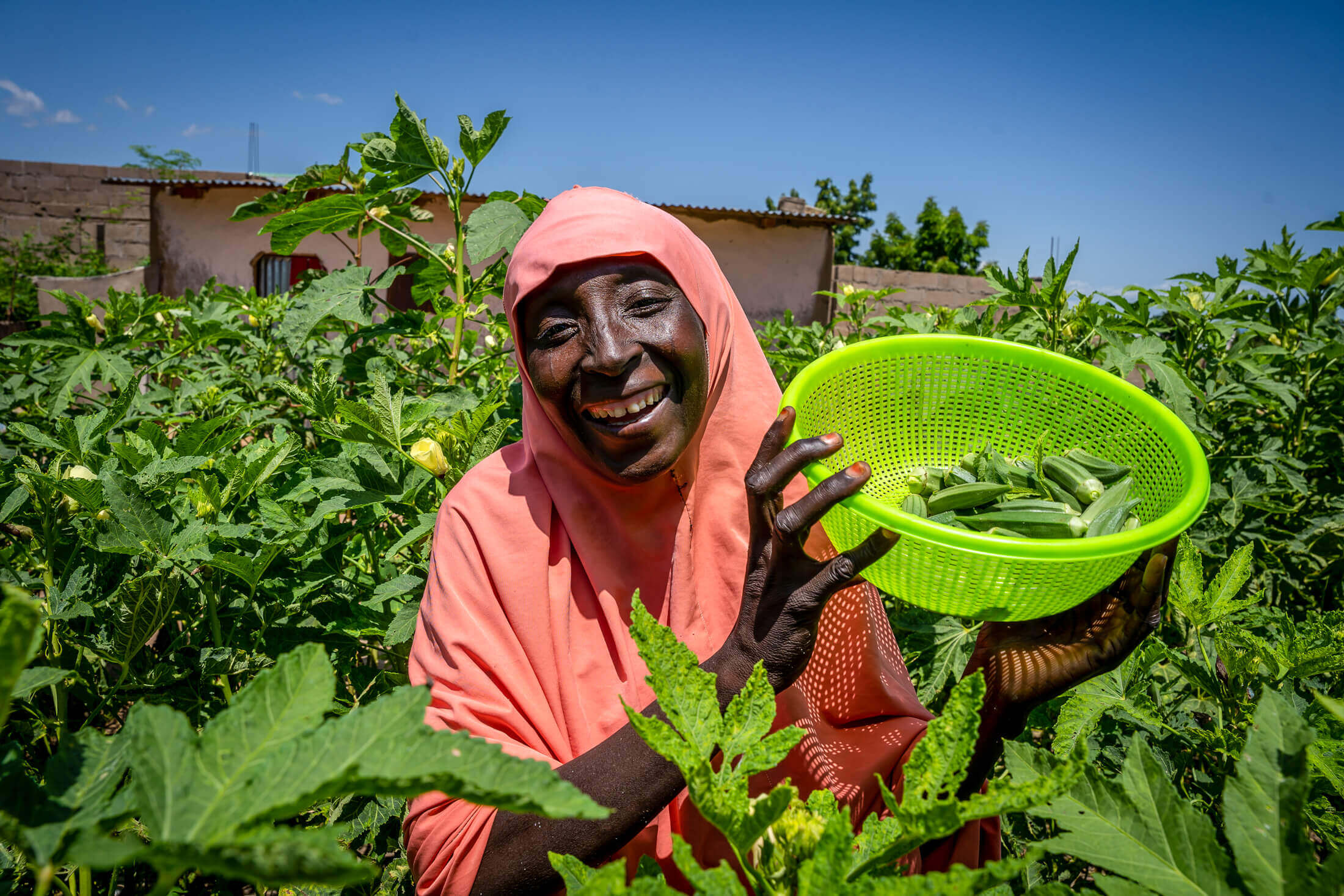
Fati Garba is an okra farmer in Borno state, Nigeria, who had land available but lacked the resources and training to make full use of it. With training from International Medical Corps, and support from our cash assistance program, she learned how to farm during the dry season. The proceeds from her crops have helped her pay school fees, so her children can get an education.
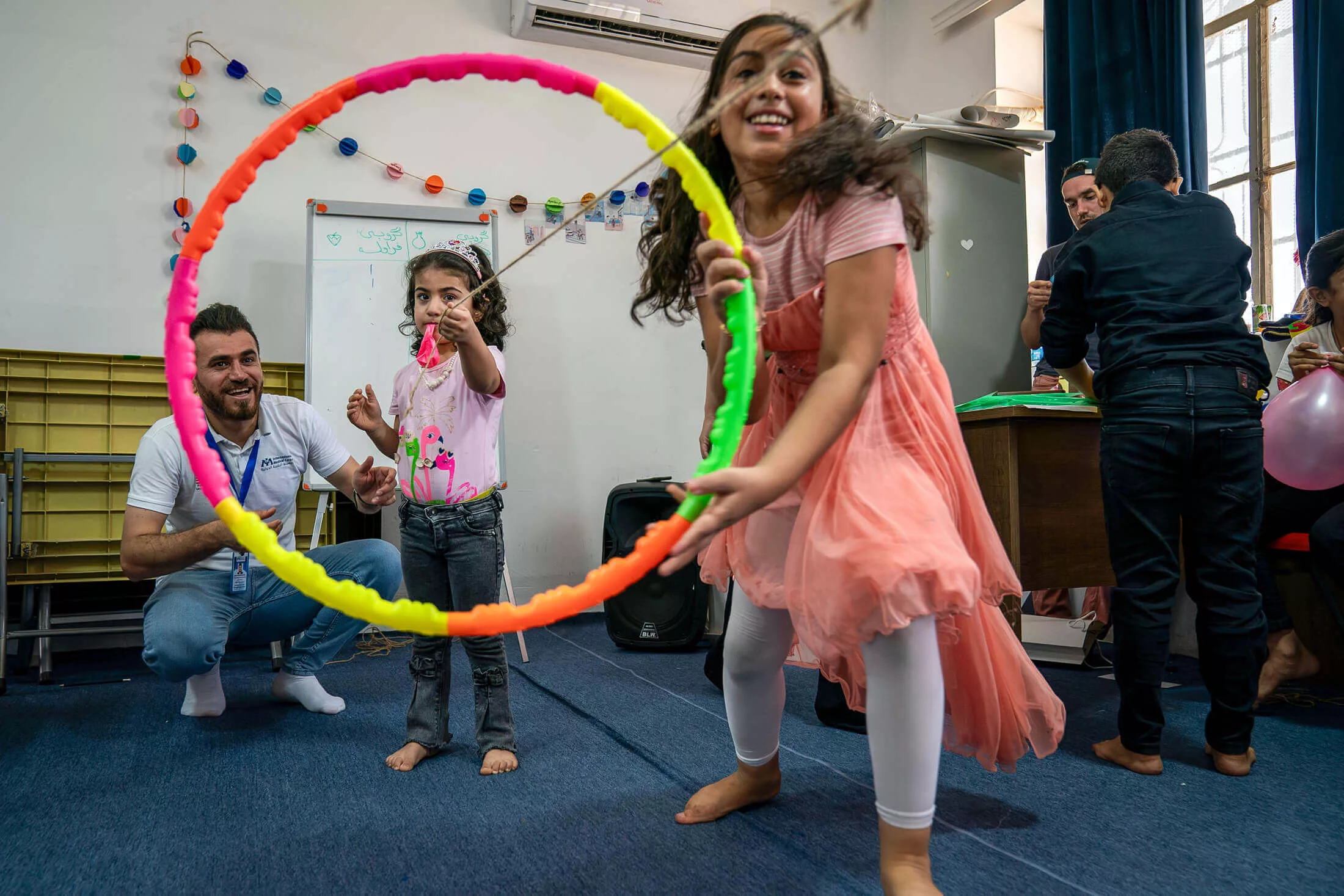
Displaced children take part in psychosocial activities at the Child Protection Center run by Green Desert, a local NGO partner in Mamzawa, Iraq, supported by International Medical Corps that provides a child-friendly space to local children aged 7–13. Mamzawa is a village on the outskirts of Erbil city that hosts many Syrian refugees and internally displaced people from Iraq.
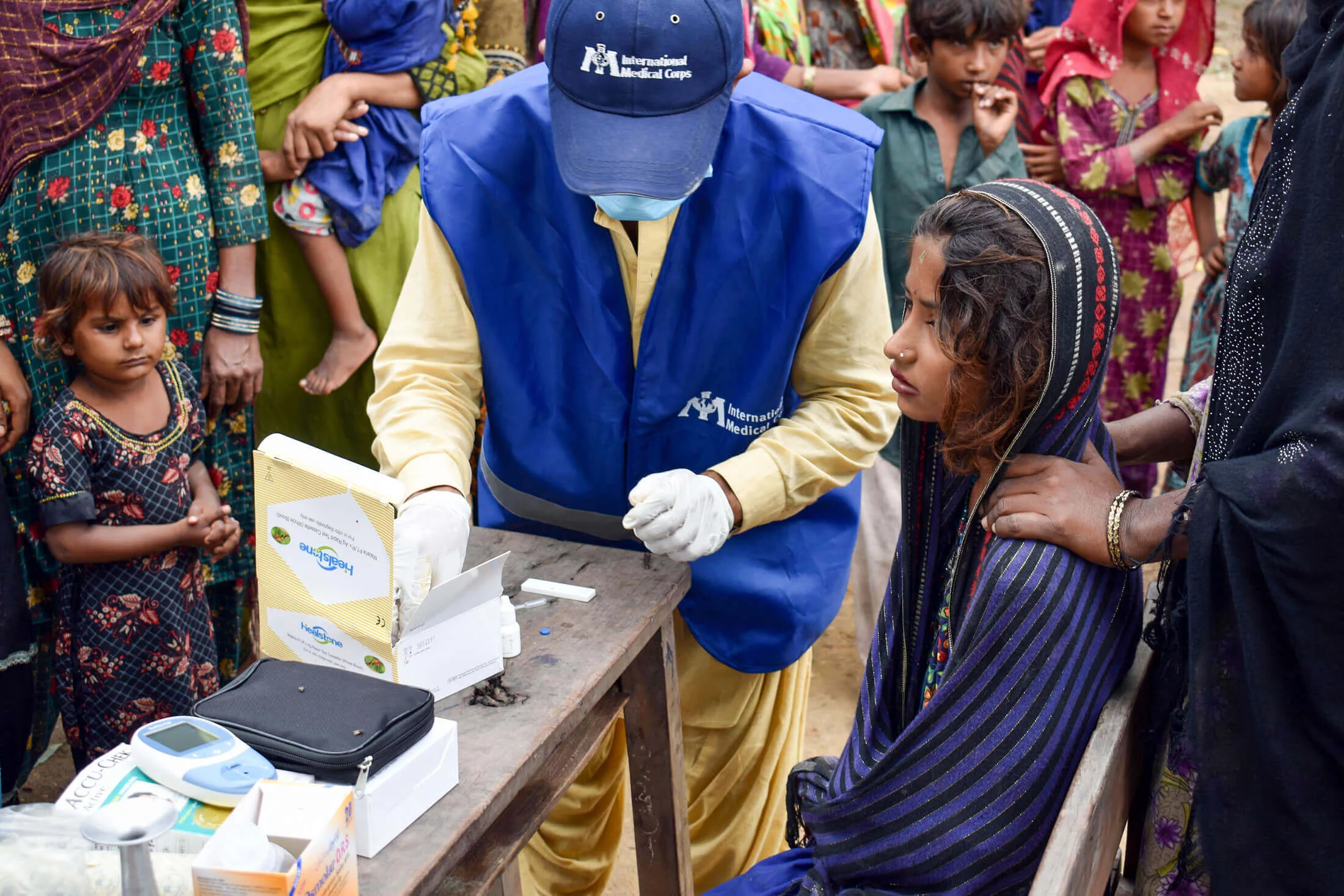
A young woman receives medicine from an International Medical Corps pharmacist at a mobile medical unit (MMU) in Sajawal district, Pakistan. Cyclone Biparjoy made landfall on June 15, 2023, between Karachi, Pakistan, and Mandvi, India. International Medical Corps worked with the local health department to help displaced people by providing medical assistance in relief camps in Sajawal, deploying two MMUs and providing consultations and critical medicines for a range of conditions, as well as donating medical supplies to regional governments.
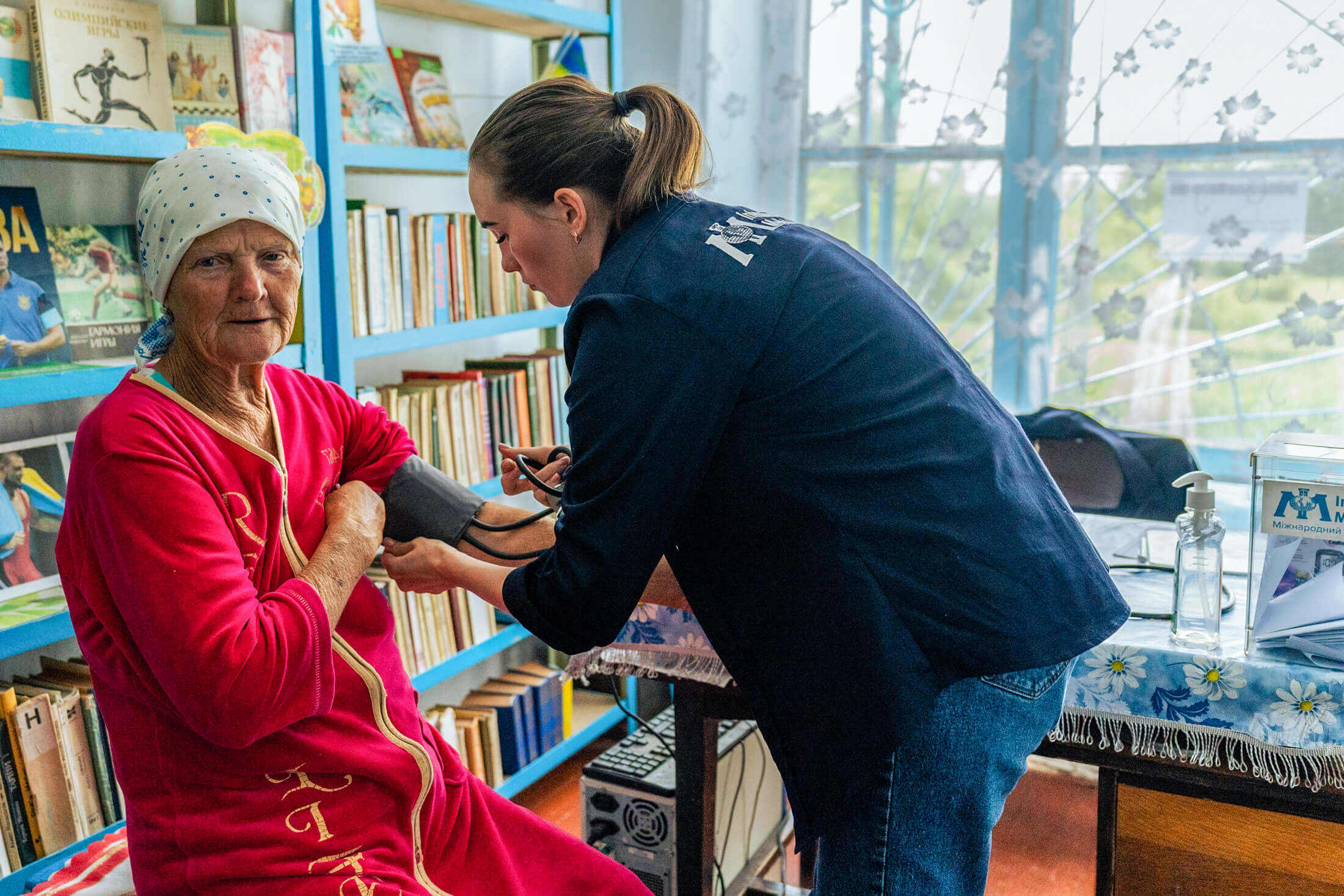
An International Medical Corps doctor treats a patient in Dachnoe, Ukraine, in a pop-up location where our staff provided health consultations and medicines to people who hadn’t had access to healthcare in months. Since invading Ukraine in February 2022, Russian forces have attacked more than 1,000 healthcare facilities, according to the World Health Organization—the highest number recorded by the WHO in any conflict. Our 400+ staff members are working out of nine locations across the country to ensure continuity of care for Ukrainians who need it.
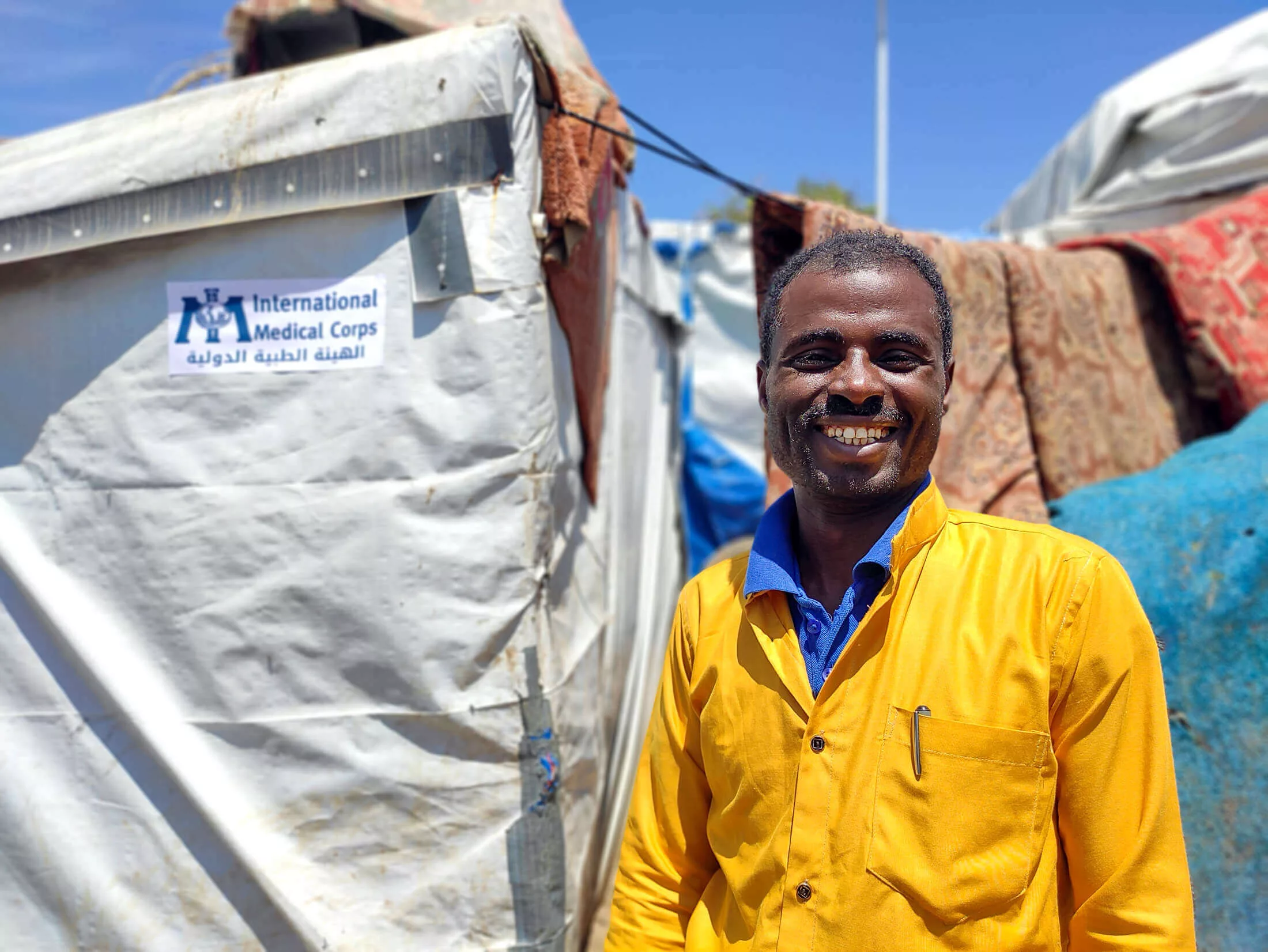
Abdulsalam Najee is a Community Health Volunteer with International Medical Corps’ WASH team in Ibb, Yemen. He also is a leader for internally displaced persons in the Dar Al Sharaf camp, where he lives. Abdulsalam raises awareness in his community about cholera prevention, handwashing, waste management, water treatment and general measures for preventing the spread of communicable diseases. Due to his hygiene promotion efforts, Dar Al Sharaf is a healthier and cleaner camp for all residents.
Though we don’t know where or when the next disaster will be, as we move forward into a new year, we do know that, together, we can rise to whatever challenges we face, and continue to be a force of health and hope for those who need it most.
